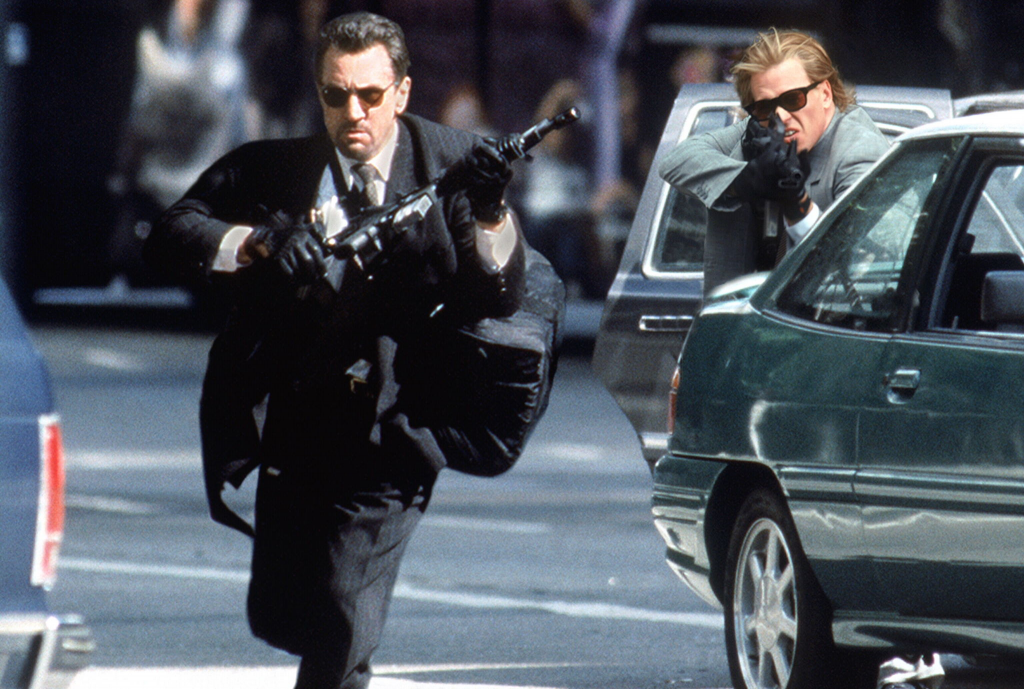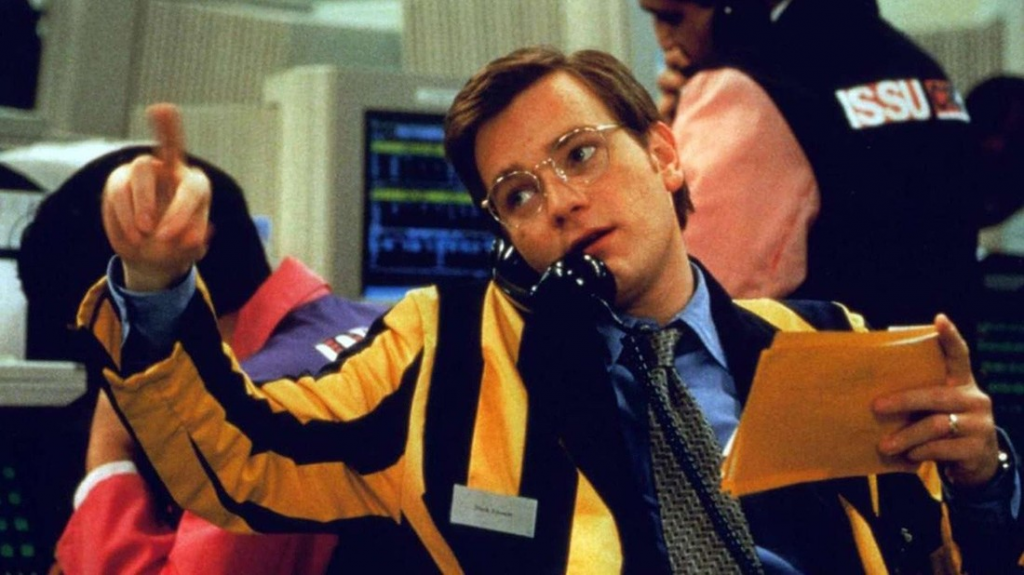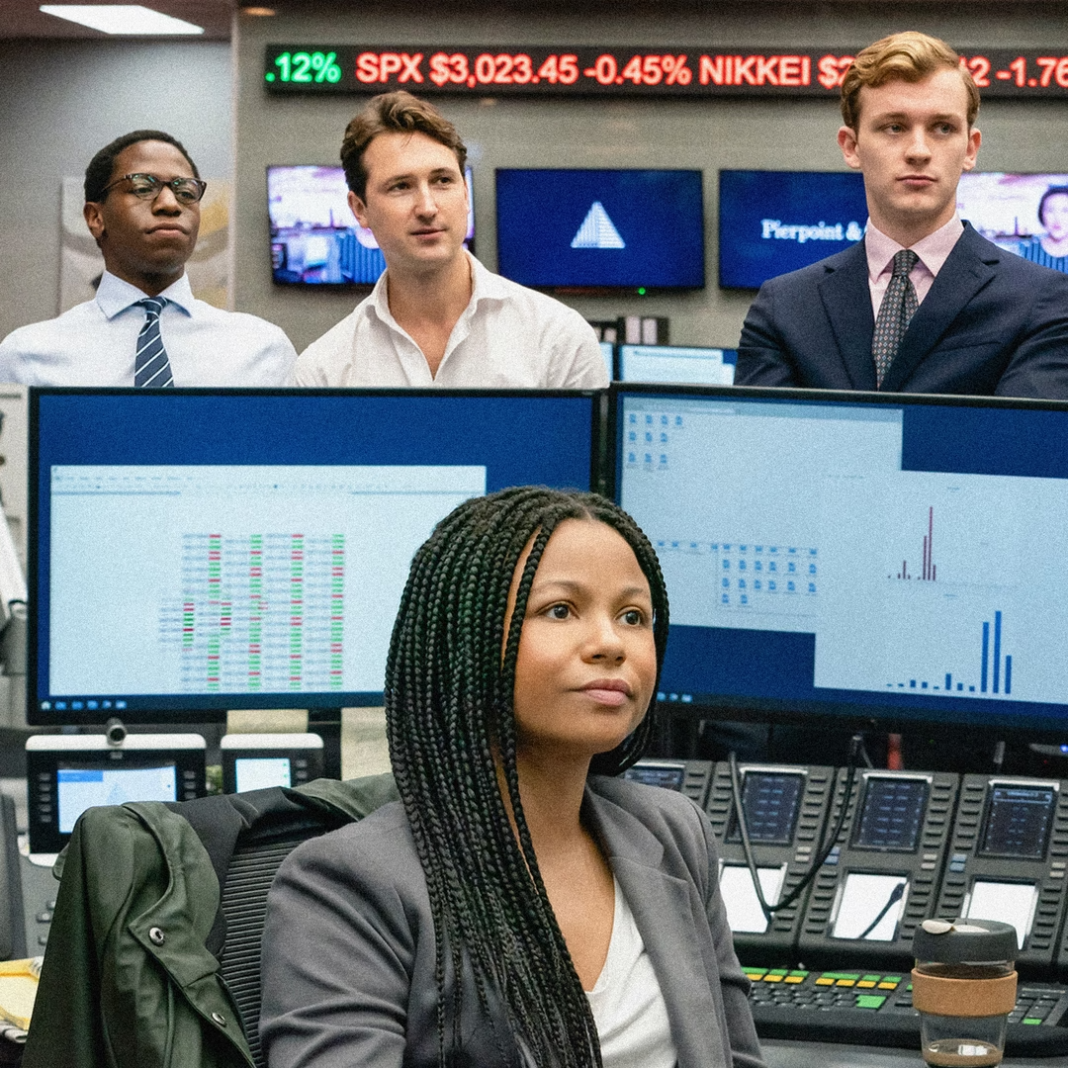When HBO and BBC’s Industry premiered in 2020, it quickly captivated viewers with its intense portrayal of the high-stakes world of finance. The show follows a group of graduates navigating their careers at Pierpoint, a London-based investment bank. Beyond finance, Industry explores themes of ambition, power, loyalty, betrayal, and class systems, with each episode offering thrilling drama, moral dilemmas, and personal growth. If you love the complex dynamics of Industry and are craving similar cinematic experiences, here are 10 films that capture the same energy, themes, and tension.
1. 12 Angry Men (1957)
Directed by Sidney Lumet

Sidney Lumet’s classic 12 Angry Men may not involve the world of finance, but its dramatic tension and character-driven storytelling echo the dynamics of Industry. The film focuses on a jury deliberating the guilt of an 18-year-old defendant, with each juror bringing their own biases, emotions, and perspectives into the decision-making process. Similarly, in Industry, boardroom battles are often a clash of egos, motives, and power struggles.
Both 12 Angry Men and Industry feature intense, contained discussions that feel like intellectual and emotional chess matches. The claustrophobic atmosphere in the jury room mirrors the high-stakes pressure of Pierpoint’s boardrooms. As the jurors argue over the defendant’s fate, their personal motivations take center stage, just as the characters in Industry often put their ambitions and desires before the greater good.
2. Animals (2019)
Directed by Sophie Hyde

At the heart of Industry is the friendship between Harper and Yasmin, which is both supportive and fraught with tension. Sophie Hyde’s Animals explores a similarly intense relationship between Laura and Tyler, two women navigating their friendship as they confront life changes, personal growth, and shifting priorities. Both stories capture the complexity of female friendships—messy, real, and full of emotional depth.
In Animals, Laura and Tyler’s friendship is tested as they move in different directions in life, much like Harper and Yasmin in Industry. Both films highlight how friendships can be both nurturing and destructive, with self-discovery playing a pivotal role in shaping these relationships.
3. Heat (1995)
Directed by Michael Mann

Michael Mann’s Heat may not be a financial thriller, but its DNA can be found in the adrenaline-pumping energy of Industry. Heat follows the cat-and-mouse game between a seasoned detective and a master criminal, with a focus on professionalism, obsession, and loyalty. Industry often draws on the same level of tension, particularly in its depiction of high-stakes trading floors where every decision feels like life or death.
Both Heat and Industry excel at making technical details—whether it’s trading jargon or bank heists—accessible and thrilling for the audience. The rapid-fire pacing, attention to detail, and focus on character motivations in Heat is echoed in Industry’s trading sequences, where every deal carries significant weight.
4. Margin Call (2011)
Directed by J.C. Chandor

Margin Call is one of the most direct cinematic companions to Industry, especially in its depiction of the 2008 financial crisis. The film takes place over 24 hours at an investment bank on the brink of collapse, following key employees as they scramble to understand the full extent of their company’s financial ruin. The intense focus on a looming disaster mirrors the way Industry explores Pierpoint’s financial instability and internal crises.
Margin Call delves into the moral and ethical dilemmas of those working in finance, much like Industry examines how characters justify their actions in a cutthroat, high-stakes environment. The pressure of making decisions that can alter the course of careers, companies, and the economy is a constant theme in both the film and the show.
5. The Big Short (2015)
Directed by Adam McKay

If Industry’s complex financial maneuvers sometimes leave you scratching your head, The Big Short is the perfect film to explain the intricate world of financial crises. This Oscar-winning film breaks down the 2007-2008 housing market crash and its causes with humor and precision, using a mix of narration, celebrity cameos, and financial jargon to explain complex economic concepts in an accessible way.
In Industry, the characters’ risky financial moves are reminiscent of the kind of speculative investments that led to the crash, and The Big Short provides valuable context for understanding these dynamics. Both the show and the film are scathing critiques of greed and the careless risks that drive the financial industry.
6. The Riot Club (2014)
Directed by Lone Scherfig

The Riot Club offers a sharp critique of the British class system, a theme that runs deeply through Industry. This drama follows the lives of upper-class Oxford students who belong to an exclusive drinking club that represents privilege, entitlement, and the dark side of elitism. Much like in Industry, where characters from different social backgrounds navigate the world of finance, The Riot Club exposes the moral decay often lurking beneath wealth and privilege.
Both The Riot Club and Industry explore how institutional power and privilege can corrupt individuals and systems. The film’s portrayal of the insular world of the British elite draws parallels to how Industry shows Pierpoint’s upper echelons as a microcosm of wealth and influence.
7. Rogue Trader (1999)
Directed by James Dearden

Rogue Trader tells the real-life story of Nick Leeson, whose reckless trading led to the collapse of Barings Bank in 1995. Played by Ewan McGregor, Leeson’s journey mirrors the high-risk behavior seen in Industry’s characters, particularly in their moments of desperation and moral ambiguity. The film explores the dangerous allure of success at any cost and the perilous consequences of unchecked ambition.
Like Industry, Rogue Trader highlights the personal and financial stakes that come with working in high-risk environments. Both stories serve as cautionary tales about the dangers of hubris and the fragile nature of financial institutions.
8. The Wolf of Wall Street (2013)
Directed by Martin Scorsese

Martin Scorsese’s The Wolf of Wall Street is perhaps the ultimate depiction of excess, greed, and moral decay in the financial world. The film follows the rise and fall of Jordan Belfort, played by Leonardo DiCaprio, as he indulges in a hedonistic lifestyle fueled by questionable financial practices. Like Industry, the film doesn’t shy away from showing the darker side of ambition and the corrupting influence of wealth.
While The Wolf of Wall Street leans into the excesses of the financial world with humor and bombast, it shares Industry’s focus on the moral compromises and questionable decisions made in the pursuit of success. Both properties explore the fine line between ambition and self-destruction.
9. Uncut Gems (2019)
Directed by The Safdie Brothers

Uncut Gems is a heart-pounding thriller about a jeweler and gambling addict, played by Adam Sandler, who gets caught up in a high-stakes game of debt, addiction, and survival. The film’s frenetic pacing and intense focus on a protagonist constantly on the edge of disaster make it a perfect companion to Industry. In Uncut Gems, the stakes are personal and financial, just as they are for many of the characters in Industry.
Both Uncut Gems and Industry are relentless in their depiction of individuals driven to make increasingly desperate decisions. The films’ protagonists often find themselves in situations where they are gambling with their future, a theme that resonates deeply with Industry’s portrayal of high-risk financial environments.
10. Wall Street (1987)
Directed by Oliver Stone

No list of financial dramas would be complete without Wall Street, the seminal film that defined the genre. Directed by Oliver Stone, the film follows the ambitious Bud Fox (Charlie Sheen) as he becomes entangled with the unscrupulous corporate raider Gordon Gekko (Michael Douglas). Wall Street’s iconic line, “Greed, for lack of a better word, is good,” perfectly encapsulates the ethos of both the film and Industry.
Wall Street explores the seductive nature of power, wealth, and ambition, themes that are central to Industry. The film’s critique of corporate greed and its examination of the moral compromises made in pursuit of success remain relevant today, making it a must-watch for fans of the show.
Whether you’re drawn to Industry for its fast-paced financial drama, its exploration of personal and professional ambition, or its sharp critique of class and privilege, these 10 films offer a range of thematic connections that will keep you entertained. Each movie provides a different lens on the world of finance, ambition, and the moral questions that arise when the stakes are high. So while you’re waiting for the next season of Industry, dive into these films for a deeper exploration of the world of power and ambition.

